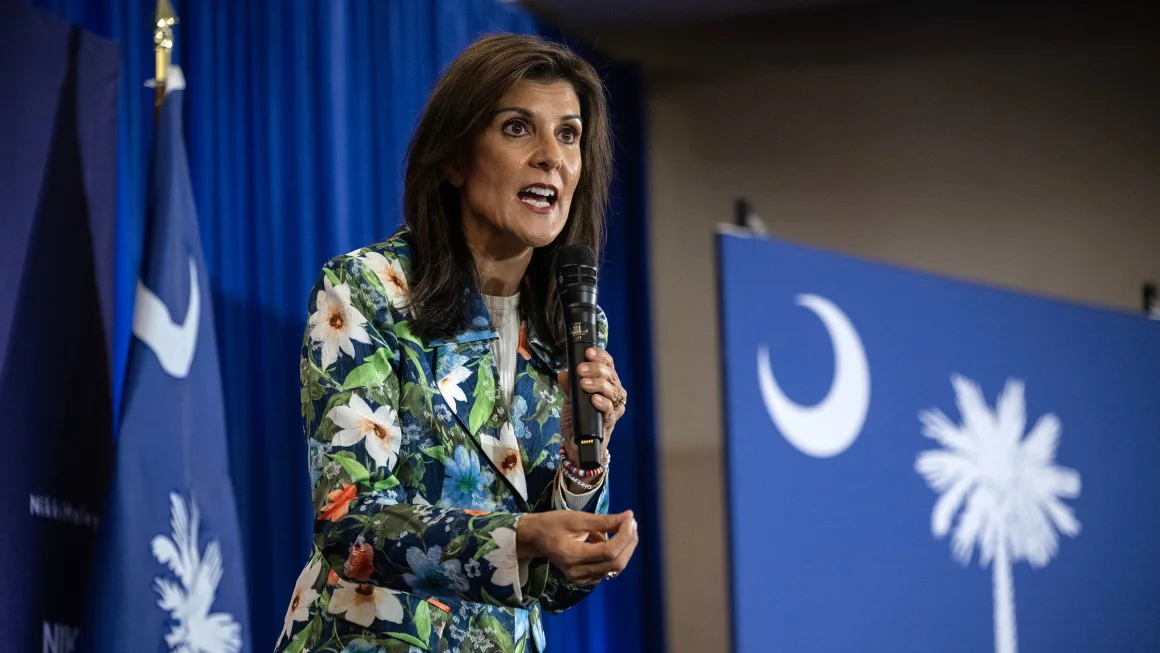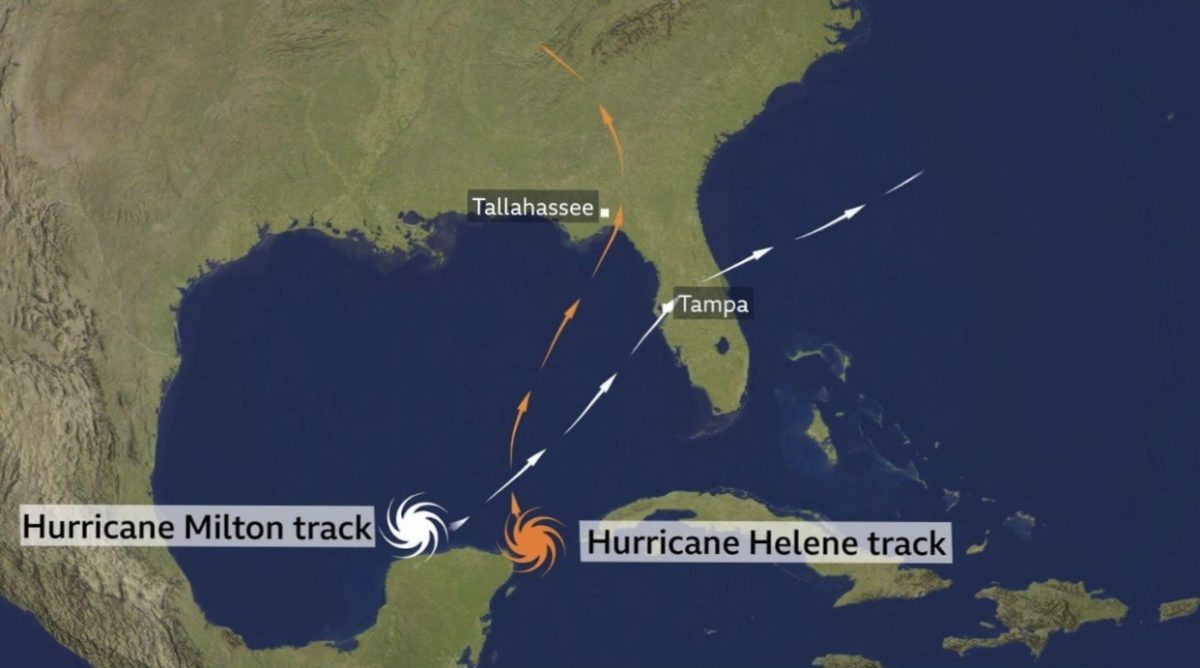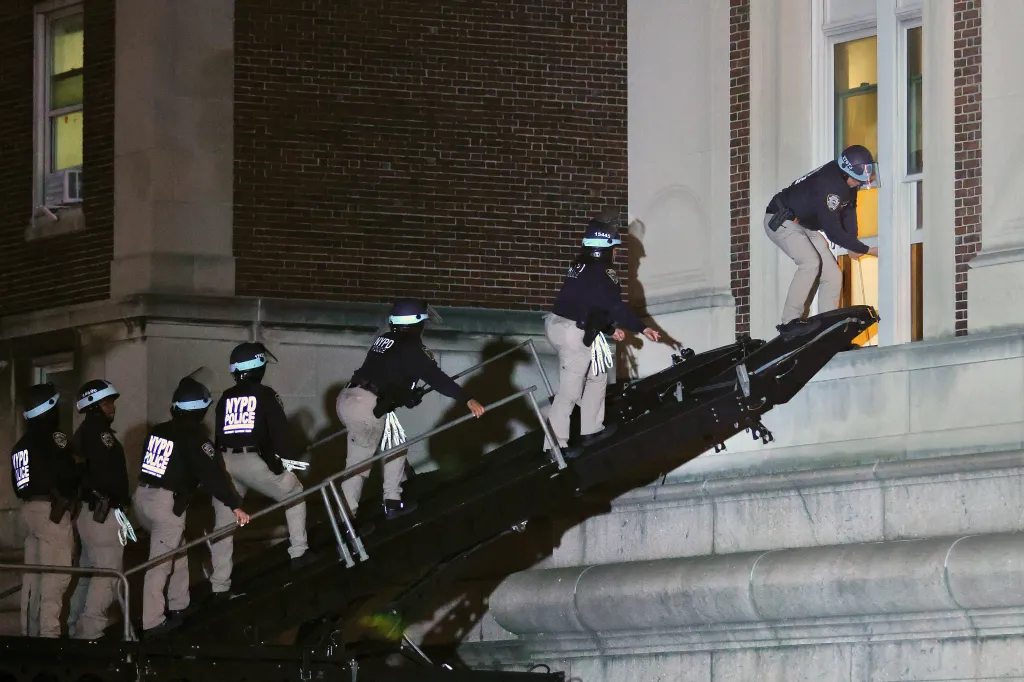Nikki Haley is the last remaining candidate challenging Donald Trump for the Republican presidential nomination, but her window to potential victory is closing quickly.
The former South Carolina governor and U.S. ambassador to the United Nations has not won a single primary or caucus thus far, but is still campaigning as the only alternative to former President Trump.
The first major candidate to officially challenge Trump for the nomination, Haley from the start faced an uphill battle against the man who reshaped the GOP in his likeness and holds unrivaled control over it.
As the campaign rolled along, Haley and Florida Governor Ron DeSantis emerged as the strongest alternatives, but came nowhere close to making the race against Trump competitive. The two were more likely to attack each other than the former president, leading commentators to label the Republican primary as the “race for second place.”
While both candidates avoided directly attacking Trump, they took an almost Hail Mary-like approach in early primary and caucus states that would buoy them to the nomination.
For most of 2023, Trump was away from the campaign trail amid various legal troubles and criminal indictments ranging from paying hush money to a porn star to orchestrating a criminal conspiracy in Georgia to overturn his 2020 election defeat.
Haley and DeSantis took this chance to go all in on the early voting states of Iowa and New Hampshire, but the pro-Trump base of the Republican Party yielded them little support.
The Jan. 15 Iowa caucuses came and went, with Trump winning an outright majority of the vote with 51%.
DeSantis came in second, earning 21%, and Haley followed closely at 19%. They were separated by less than two thousand votes. Despite losing outright, both candidates would downplay their lackluster performances during the night of the caucuses.
The next contest was the New Hampshire primary on Jan. 23. Coming out of her third place finish in Iowa, Haley predicted an even stronger showing in New Hampshire.
At the time Haley’s prediction of a possible win in New Hampshire seemed plausible. Recent polls showed Haley, endorsed by the state’s popular Republican governor, and Trump in a head-to-head competition amid a divided field in a state with an independent-minded voter base known for picking the presumptive nominee.
However, major blows would come to her chances to win the Granite State when right-wing firebrand Vivek Ramaswamy dropped out after a disappointing fourth place finish and endorsed Trump. At the time, Ramaswamy was polling at five percent in New Hampshire.
Further compounding the mathematical challenge for Haley, DeSantis also dropped out six days after the caucuses and endorsed Trump. DeSantis, the only other major candidate challenging Trump, had spent little campaign capitol in New Hampshire and was polling at similar margins to Ramaswamy.
In the lead-up to the primary, Haley shifted from predicting a win to being content with a strong second place finish.
A second place finish is what Haley would get; Trump won the primary 54-43.
With a comparatively close 11- point defeat in the state she was the most likely to win, Haley has refused to back down now that she is the only candidate standing between Trump and a clear path to the nomination.
Haley is now focusing on the next major primary in her home state of South Carolina, but her chances appear slimmer than Iowa or New Hampshire.
Despite being governor of the state for two terms, Haley has little support from South Carolina’s political class. The state’s current governor and both its sitting U.S. senators have endorsed Trump. One of those senators is Tim Scott, a former presidential candidate whom Haley appointed to the senate in 2013.
In contrast, the biggest endorsement Haley has from her home state is a singular congressman.
Even though Haley polls behind Trump by some amount, she has not avoided Trump’s newfound ire for his last remaining foe.
Eversince DeSantis’ withdrawal, both Haley and Trump have ramped up their attacks on each other.
Following the Iowa caucuses, Trump took to his social media platform, Truth Social, to criticize Haley, referring to her as “Nimbra,” a butchery of her given name Nimarata. (Nikki is her middle name.)
Trump also used Truth Social to repost false accusations that Haley, born in the United States to Indian emigrants, is ineligible to run for president because of her parents’ foreign citizenship.
Haley has returned fire with fire, labeling the 77-year-old former president as too old to serve another term and criticizing the former president’s statements of praise for authoritarian leaders.
These attacks have become increasingly personal with Trump insinuating that Haley’s husband had left her.
“What happened to her husband? Where is he? He’s gone!” Trump said at a Feb. 9 rally in South Carolina.
Haley’s husband is a major with the Army National Guard and is currently deployed in the Horn of Africa. She has used Trump’s comments about her husband to remind voters of the former president’s history of insulting veterans and the president’s own lack of service due to a Vietnam era draft deferment for supposed bone spurs.
Although Trump’s attacking his opponents is nothing new for the former president, Haley’s increasingly pointed and direct attacks are new for a candidate who avoided mentioning Trump at all during the entirety of her campaign.
Whether her direct attacks on Trump will help or hurt her, both Haley and Trump will go head to head on Feb. 24 in South Carolina’s make or break primary.







